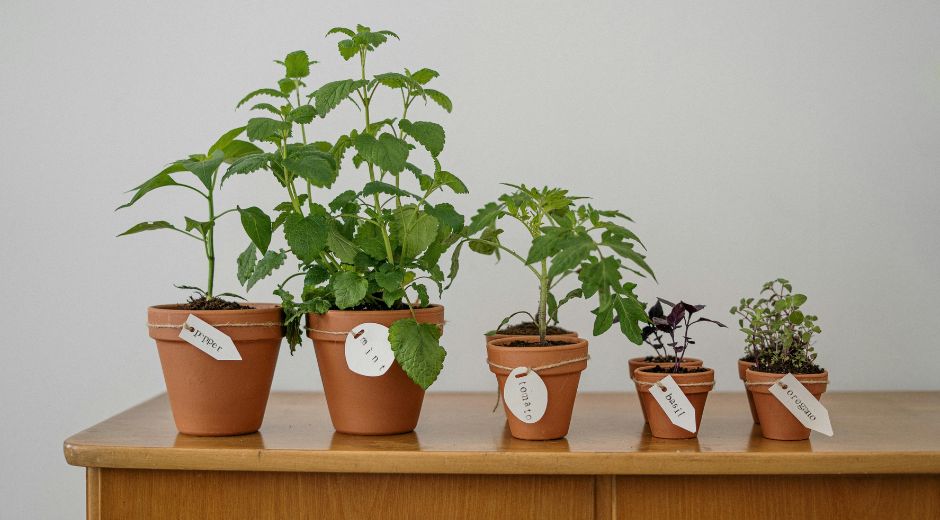Conscious Living: Building a Lifestyle of Sustainability and Purpose
Modern life often encourages speed, convenience, and consumption. Yet as the world becomes increasingly aware of environmental impact and social responsibility, more people are rediscovering the importance of sustainability. Living sustainably is not just about recycling or buying eco-friendly products. It’s about designing a life that supports balance, wellbeing, and respect for the planet.
Sustainability begins with awareness. It asks each of us to look beyond individual comfort and consider how our choices affect others and the environment. A sustainable lifestyle nurtures health, happiness, and harmony, connecting daily living to a larger purpose.
What Sustainability Really Means
Sustainability is the practice of meeting our current needs without compromising the ability of future generations to meet theirs. It includes the responsible use of resources, the reduction of waste, and the cultivation of ethical habits that protect both people and the planet.
But sustainability goes deeper than environmental actions. It also includes emotional and physical sustainability—how we manage our energy, relationships, and work-life balance. A sustainable life is one that can be maintained joyfully over time. It’s not about perfection but about mindful intention.
According to National Geographic, sustainable living reduces the strain on natural ecosystems while improving personal wellbeing. It’s a holistic approach where every choice becomes an opportunity for alignment between inner values and outer actions.
Why Sustainability Matters for Personal Wellness
The environment and human health are deeply connected. Polluted air, processed foods, and overconsumption all take a toll not just on the planet but on our own bodies. Choosing a sustainable lifestyle means choosing cleaner food, cleaner air, and cleaner energy, which directly translate into better health.
When you eat local produce, use non-toxic products, and minimize waste, you are improving both your physical health and your mental wellbeing. Sustainability also promotes emotional clarity. When your actions align with your beliefs, it creates a sense of integrity and peace that no material comfort can replace.
At BodyWellnessGroup.com, we define wellness as more than personal health. True wellness extends outward, connecting individuals to their environment and community.
The Mindful Consumer
Every purchase we make tells a story. Whether it’s food, clothing, or technology, each product carries an environmental footprint. Mindful consumption begins with awareness of that footprint. Before buying something, ask yourself: Do I really need this? How was it made? Who benefits or suffers from this purchase?
By asking these questions, we begin to consume with consciousness rather than impulse. Sustainable consumption encourages buying fewer but higher-quality items, supporting brands that value ethics, transparency, and durability.
Fast fashion, for example, has become one of the most polluting industries on the planet. Choosing clothing made from organic or recycled materials reduces waste and supports fair labor practices. Similarly, supporting local artisans or secondhand shops helps create a circular economy that keeps resources in use longer.
Sustainable Food Choices
What we eat affects not only our health but also the planet’s wellbeing. The modern food industry relies heavily on intensive farming, deforestation, and chemical fertilizers. By choosing more sustainable eating habits, we can dramatically reduce environmental damage while improving our nutrition.
Simple ways to eat sustainably include:
Increasing plant-based meals each week
Buying seasonal and locally grown produce
Reducing food waste through meal planning and composting
Supporting farms that use ethical and organic practices
A diet rich in fruits, vegetables, grains, and legumes requires fewer resources to produce and supports long-term health. It’s a win for the planet and for personal vitality.
According to World Wildlife Fund (WWF), global food production is the single largest driver of biodiversity loss. Choosing sustainability at the dinner table helps protect wildlife, conserve water, and stabilize the climate.
The Role of Energy and Transportation
Energy use is one of the biggest factors in sustainability. Small lifestyle adjustments can reduce your carbon footprint significantly. Turning off unused lights, switching to energy-efficient appliances, or using renewable energy sources at home are impactful choices.
Transportation habits also make a difference. Walking, cycling, or using public transit reduces emissions and improves physical health. Carpooling or driving electric vehicles are practical options that combine convenience with responsibility.
These changes might seem small, but collectively they lead to major environmental benefits. Every conscious action adds up to a lifestyle that values both progress and preservation.
Sustainability at Home
Creating a sustainable home environment begins with awareness and intention. A few thoughtful changes can transform your living space into a healthy, energy-efficient sanctuary.
Reduce plastic by choosing glass, stainless steel, or biodegradable alternatives.
Invest in quality rather than quantity—buy durable furniture and appliances designed to last.
Conserve water with efficient fixtures and mindful usage.
Decorate with nature using plants that purify air and bring calmness into your space.
Embrace natural light and ventilation whenever possible.
A home designed with sustainability in mind doesn’t just reduce waste—it improves your quality of life. The atmosphere feels lighter, calmer, and more authentic.
Sustainability and Mental Health
Sustainability is not only external but deeply internal. When we overconsume, rush, and multitask constantly, we create unsustainable mental habits that drain our energy. Living sustainably involves slowing down and making choices that preserve emotional balance.
This might mean saying no to unnecessary commitments, setting healthy boundaries, and choosing rest without guilt. Emotional sustainability ensures that your lifestyle supports long-term peace rather than burnout.
Spending time in nature also enhances mental clarity and reduces anxiety. Research published by the American Psychological Association shows that exposure to natural environments improves mood, focus, and overall cognitive function. Nature acts as both teacher and therapist, reminding us of the balance that sustainability represents.
Community and Collective Action
True sustainability is not an individual act but a collective effort. Joining local initiatives, volunteering for environmental projects, or supporting eco-conscious community events strengthens the shared responsibility for change.
When communities work together, small shifts become powerful movements. Collective action builds networks of support and inspires others to follow similar paths. Each neighborhood, workplace, or school can become a micro-ecosystem of positive impact.
At BodyWellnessGroup.com, we believe that sustainable wellness is rooted in connection—to ourselves, to others, and to the Earth. No lifestyle is truly complete without community.
Digital Sustainability
Our digital habits also have a footprint. Every online activity requires energy—servers, data centers, and devices consume electricity continuously. Practicing digital sustainability means reducing unnecessary online storage, managing screen time mindfully, and extending the lifespan of devices.
This also connects to mental wellness. Digital overload contributes to stress, comparison, and fatigue. Creating boundaries around digital consumption allows both the mind and the planet to breathe easier.
Simple steps include decluttering your inbox, deleting unused apps, and reducing cloud storage waste. A clear digital space mirrors a clear mind.
The Financial Side of Sustainable Living
Contrary to popular belief, sustainability can be cost-effective. While eco-friendly products sometimes have higher upfront prices, they often save money in the long run due to durability and efficiency.
Buying less frequently, repairing instead of replacing, and minimizing energy waste reduce long-term expenses. Budgeting for quality rather than quantity creates financial stability aligned with ethical values.
Over time, sustainable habits turn into a lifestyle that is both responsible and rewarding.
Overcoming Challenges in Sustainable Living
Transitioning to a sustainable lifestyle can feel overwhelming at first. The key is progress, not perfection. Start small and focus on consistency. Replace one habit at a time—switch to reusable bottles, shop locally once a week, or choose natural cleaning products.
Avoid the pressure of comparison. Sustainability is personal. Each person’s circumstances and resources are different. What matters is effort, awareness, and intention.
Even setbacks are part of the process. The goal is to move toward harmony, not to achieve flawless minimal impact.
The Deeper Meaning of Sustainability
Beyond its practical benefits, sustainability invites us to rethink our relationship with life itself. It teaches patience, gratitude, and responsibility. It transforms consumption into appreciation.
Living sustainably is not about sacrifice—it’s about rediscovering value in simplicity. It’s about slowing down enough to notice beauty, nurturing both the planet and your inner world. When our choices reflect respect for life, we naturally experience greater joy and purpose.
Sustainability reminds us that everything is connected. The air we breathe, the food we eat, the water we drink, and the people we meet are part of one continuous ecosystem of existence.
Creating a Sustainable Routine
A sustainable lifestyle thrives on routine and mindfulness. Here are daily practices that help sustain your commitment:
Begin the day with gratitude for the resources you use—water, light, and food.
Plan meals to minimize waste and use leftovers creatively.
Choose walking or biking for short trips.
Reuse containers and bags whenever possible.
Dedicate time weekly to connect with nature or volunteer for a cause.
Reflect at night on one action that contributed positively to the planet.
These habits build awareness and foster long-term transformation. Sustainability becomes second nature when rooted in daily mindfulness.
Conclusion: Living with Intention and Integrity
Sustainability is a way of life that connects purpose with practice. It invites us to live consciously, care deeply, and act responsibly. Each small change we make ripples outward, influencing our health, our communities, and the Earth itself.
A sustainable lifestyle is not a destination but a journey—one that grows richer with every mindful choice. When we align our values with our actions, life gains meaning and balance.
To explore more about sustainable living, conscious habits, and holistic wellness, visit BodyWellnessGroup.com and browse our Lifestyle section for fresh insights and resources.
For research and global updates on sustainability practices, visit National Geographic for educational perspectives and real-world inspiration.
And to begin implementing your first step toward conscious living, start right here: Politicxy
Sustainability is not about living perfectly—it’s about living purposefully. It’s the bridge between self-care and world care, reminding us that by healing our planet, we heal ourselves.
Wellness Made Simple

Energy Balance Habits For Sustainable Performance
Energy Balance Habits For Sustainable Performance

Holistic Body Care Beyond Exercise And Diet
Holistic Body Care Beyond Exercise And Diet

Physical Ease Practices For Pain Free Movement
Physical Ease Practices For Pain Free Movement

Why Athletes Load Manage: Protecting the Body for the Long Game
Why Athletes Load Manage: Protecting the Body for the Long Game

Wellness Rhythm For Balanced Daily Living
Wellness Rhythm For Balanced Daily Living

Building Body Resilience Through Consistent Habits
Building Body Resilience Through Consistent Habits

Movement For Wellness Without Overtraining
Movement For Wellness Without Overtraining

Calm Body Practices For Stress Sensitive Nervous Systems
Calm Body Practices For Stress Sensitive Nervous Systems

Rest And Renewal Practices For Mental And Physical Health
Rest And Renewal Practices For Mental And Physical Health













